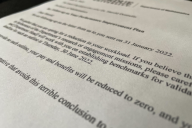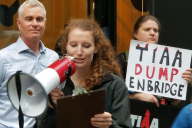You have /5 articles left.
Sign up for a free account or log in.
A federal judge has granted class action status to a lawsuit charging that TIAA-CREF wrongfully retained investment income from the accounts of instructors at private colleges and universities around the country.
While the judge approved the class action recently, the suit dates to 2009, when instructors at Saint Michael’s College, in Vermont, noticed delays in receiving their retirement checks. They were transferring their funds from one retirement plan to another, so they effectively closed their accounts with TIAA-CREF, said Tucker Ronzetti, the plaintiffs' lead lawyer. When they checked their accounts online they noticed that their values had increased -- in some cases by thousands of dollars -- in the days when their accounts were being closed. The lawyers estimate that TIAA-CREF is denying gains from the accounts totaling at least $40 million.
“[TIAA-CREF] would keep the gains rather than give them to the educators whose accounts" generated the gains, Ronzetti said.
The class action representatives in the lawsuit are Christine Bauer-Ramazani and Carolyn Duffy, who are both instructors at Saint Michael’s. The class could be as many as 40,000 employees at private colleges with TIAA-CREF accounts, although it is unclear if that many have claims.
TIAA-CREF officials deny any wrongdoing, although they say that they cannot discuss details of the case.
“Serving clients is our top priority and we take these matters seriously. However, as a matter of policy we cannot comment on pending litigation,” said an e-mailed statement from TIAA-CREF.
The plaintiffs in the case assert that TIAA-CREF violated the fiduciary duty of loyalty and failed to credit them with gains. TIAA-CREF's motion for summary judgment, filed in June, states that there is "no basis to conclude that TIAA-CREF's unitary practice for handling both gains and losses was structured to benefit anyone other than investors in its variable annuities, including plaintiffs themselves."
Ronzetti said that since the class notice has not yet been sent out, many college and university employees presumably do not even know they are part of the class.








